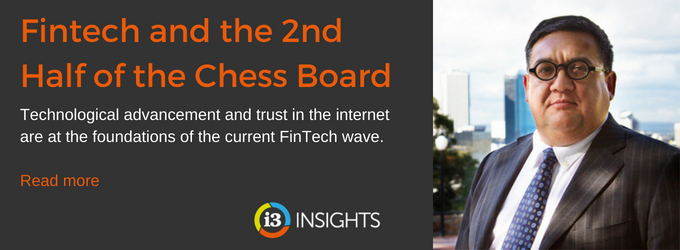As fund managers face increasing cost pressures from governments, regulators and institutional investors alike, the future of this industry might be in engaging directly with the end investors. OpenInvest founder Andrew Varlamos believes technology will be the ultimate enabler of this vision.
The funds management industry is facing some pretty significant challenges.
Not only do firms with actively managed strategies face a difficult market environment, distorted by monetary stimulus, but they also face an increasingly fee-sensitive mindset from governments, regulators and institutional investors.
Combine these developments with the trend among large pension funds to internalise asset management functions, creating a new force of competition, and it is clear to see why many managers have shrunken their ranks, often consolidating institutional and retail sales teams into one.
Andrew Varlamos, founder of OpenInvest, thinks he might have a solution for them. And not only for fund managers, but also for the increasing population of self-directed investors who are disillusioned with the financial services industry.
Historically, fund managers and the end beneficiaries of their strategies haven’t had much interaction with each other, to the point the average person in the street probably has no idea who State Street, BlackRock or PIMCO are.
It is true these companies are investment powerhouses in their own right, but they are not consumer brands because they never build products for consumers. Varlamos is trying to change that and is willing to act as a matchmaker between the two.
“What they sell is not what investors want; they are selling managed funds and investors don’t want managed funds. They want a solution, which is a whole portfolio,” he says in an interview with [i3] Insights.
“The way the investment industry works today is as if the car industry was set up such that Mercedes-Benz and Volkswagen were advertising that they had great engines, gear sticks and wheels and expecting motorists to build their cars on the weekend, using some of their components.
“My founding principle is that 99 per cent of self-directed investors don’t know enough to be responsible for funding their or their family’s retirement. It is crazy to say that because you read The Australian Financial Review twice a week you know how to set up portfolios.
“For example, the most widely held share by self-managed super funds (SMSF) is Telstra and it is worth half of what it was worth five years ago. You might go to the annual general meeting, but you don’t get to meet with management, you don’t understand global trends in telco disruption and yet here you are looking after the family’s long-term financial health.”
Most SMSF portfolios are a collection of individual stocks and cash with little consideration for diversification, rebalancing or risk optimisation strategies. Varlamos believes self-directed investors still need the help of professional asset management firms and hopes to bridge the gap with his new platform, where managers can reach end investors, without giving them advice and, therefore, without the required legal licences.
“We are an investment platform, but on top of that we’ve built a content platform, because every other platform is built for advisers. No one has built an investment platform directly for the end investor,” Varlamos says.
To make it user-friendly, Varlamos has created four multi-asset portfolio categories that fund managers have to comply with, much like the investment options given by pension funds under the defined contribution system.
“We don’t have asset class-specific portfolios. You can’t go on OpenInvest and find an Australian equity portfolio. And the reason for that is because we think that the majority of self-directed investors don’t know how to take that Aussie equity portfolio and add it to a fixed interest portfolio,” he says.

We are an investment platform, but on top of that we’ve built a content platform, because every other platform is built for advisers. No one has built an investment platform directly for the end investor
What is clever about the system is it feels like you are getting a customised service. It gives users access to articles and opinion pieces written by portfolio managers, while it also provides educational materials to help make better investment decisions.
On top of that, OpenInvest incorporates elements of social media that enables a form of interaction and creates the sense of a community.
“They have access to insights, real portfolio managers put their thinking up and then people can follow them, like the article, favourite it, comment on it and share them with their buddies,” Varlamos says.
It is turning asset management companies into consumer brands, complete with star personalities and blog posts. “Everything we’ve built is intended for the person that doesn’t come from the financial services industry. It is in plain English,” Varlamos says.
So far, the number of managers on the platform is limited, but includes some high-profile names, including Schroders, Macquarie and JB Were. As the platform grows, it will also become a source of valuable data on investor interest and behaviour.
“At the moment we are not doing anything with [the data], but if we are 12 to 18 months down the track, then our managers will be able to know that of the say 12,000 registered users on OpenInvest, 6000 are following SG Hiscock, for example, and want to receive information from SG Hiscock,” Varlamos says.
“We let the end user customise their own experience, so they can say: ‘I want to follow content from Schroders and I want to follow this particular topic.’ We can see what topics they find most interesting and which articles they read until the end.”
He believes this is a model that will be more widely adopted in the years to come.
“If you fast forward five years, hopefully OpenInvest will be a large independent marketplace for investment managers, while Vanguard, iShares, State Street will all offer direct investment portfolios … maybe even Amazon. Everything will be different,” he says.
__________
[i3] Insights is the official educational bulletin of the Investment Innovation Institute [i3]. It covers major trends and innovations in institutional investing, providing independent and thought-provoking content about pension funds, insurance companies and sovereign wealth funds across the globe.



